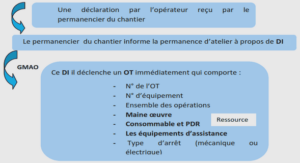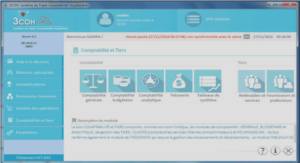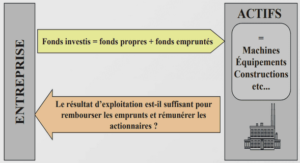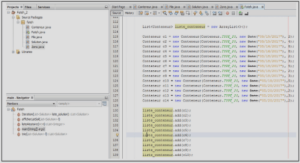INTERROGATION: A COMPARATIVE STUDY OF PULAR AND ENGLISH QUESTIONS
we’ll look at sentence structures in which subjects and verbs are more radically separated than those dealt with in « Matching Subjects to Verbs Despite Prepositional Phrases and Indefinite Pronouns. » We’ll look at interrogative sentence structures. Interrogative Sentences An interrogative sentence asks a question. We recognize the interrogative sentence by the question mark (?) serving as end-sentence punctuation. Only interrogative sentences starting with « wh » pronouns (who, whom, whoever, whomever, etc.) seem to be troublesome while interrogative sentences starting with interrogative adverbs (how, when, why, where, wherever, etc.) are quite straightforward. Interrogative Pronouns To identify the subject and the verb, we need to disregard the questioning « wh » word that starts the sentence. Let’s try a couple of sentences. We’ll follow a procedure that you can adopt if you wish. Sentence: « Whom is he going to see tonight?”
- Identify the WH-Word. We identify « Whom. »
- Ignore (remove) the WH-Word from the sentence. We remove « Whom. » The sentence now looks like this. 18 « Who is he going to see tonight? » Identify the verb. We identify « is going. » Identify the subject of « is going. » Remember « Whom » has been removed. You must work with what’s left. We ask: Who or what « is going »? Answer: « he » « is going. » Thus, « he » is the simple subject of the complete verb « is going. »In some interrogative sentences, you must be prepared to use the « wh3 » word you ignored. Here’s an example of using the « wh » word that you tried to ignore. Sentence: « Who is running in the next election »? Follow the steps we used in the first sentence until you get here. Sentence: « Who is running in the next election? » 3. Identify the verb. We identify « is running. » 4. Identify the subject of « is running. » We ask: Who or what « is running »?
Yes/no questions
In questions, we normally put an auxiliary verb before the subject. If there no other auxiliary4 , we use do. Example: Is Jessica dead? Have you seen ann? We only put an auxiliary verb before the subject, not the whole verb. Is your father coming tonight? We do not use do with other auxiliaries or with be. Can you tell me the time? Are you tired? After do we use the auxiliary the infinitive without to Did you go out last night? Negative questions: Isn’t it ready yet? Can’t she swim? We often use negative questions to confirm that something has happened, is true, etc. The meaning is similar to ‘isn’t it true that, isn’t it Didn’t you go and see Helen yesterday? How is she? We can use negative questions to make expressions of opinion less direct. Wouldn’t it better to switch the light on? Another use of negative questions is in polite invitations Won’t you come in? Wouldn’t you like something to drink? But we do not use negative questions to ask people to do things for us. Can you help me? But not can’t you help me?
Wh-Questions
Use wh-questions to ask for specific information. Wh- questions begin with question words such as who, what, where, when, why, which, whose, how many, how much, and how long. For example: Who did you see at Al’s Grill? Why did you go there? How many people did you see there? How long did you stay there? When you are asking about the subject (usually the first part of the sentence), use a wh-question word in place of the subject. The word order is the same as in a statement. 21 Someone saw you > Who saw you? . When you are asking about the predicate5 (usually the last part of the sentence), the question begins with a wh-word, but the word order is the same as in a yes/no question. Be careful! When you ask a wh-question about something in the predicate, you need either a. a form of the verb be. b. a form of an auxiliary (“helping”) verb such as do, have, can, will. For example: You saw someone. > Did you see someone? > Who did you see? Who is Harry Adams? Why was he at Al’s Grill? Why does she want to testify? Not Why she wants to testify? Usage Note: In very formal English when asking about people in the predicate, whom is sometimes used instead of who. Be Careful! If the main verb is a form of be, you cannot use whom. Very Formal Whom did you see? Informal Who did you see?
Differences between Pulaar and English questions
When we asks two questions, one in English and another in pulaar, the differences do not only lie in accents, stresses and intonations but between consonants in pulaar and consonants in English, plosives in English and plosive in pulaar, fricatives in pulaar and fricatives in English and differences in other sounds such as affricates, approximants, vowels (short vowels, long vowels and semi-vowels), sound sequences, consonant clusters, sound assimilation and word stress. The stress is placed on the analysis of the differences and similarities between the sound systems of pulaar and English. The student who comes in contact with a foreign language will find some of the features of it quite easy and other extremely difficult. Those elements that are similar to his native language will be simple for him and those elements that are different will be difficult. The pulaar sound system comprises twenty-six (26) consonants, namely eight (8) plosives / P, b, t, t, d, c, j, k, g/ three (3) implosives / b, d, y/, four (4) 28 nasals: / m, n, j ,/ four pre-nasals / mb, nd, nj, ng/ three fricatives /f, v, h / one (1) lateral: (l) , one (1) vibrant : r and two semi-vowels / w, j/ As to English, it has twenty-two consonants. They are six (6) oral plosives / P, b, t, d, k, g, / , three (3) nasals plosives / m, n, g/ two affricates / dz ts/ nine (9) fricatives: f, v , s , o, j, s, z, h, / and two laterals: / l, r/ Both languages have long and short vowels. The relation between vowels in pulaar and vowels in English is different in the two systems. Pulaar short vowels are different from long ones only in length, whereas English vowels have a difference in quality as well as of quantity. Unlike English pulaar vowel system comprises neither diphthongs nor triphthongs. Here are some examples that show that differences: Hono ňallawma oo? Jam tan How is the afternoon? Peace only Hono golle ňalli? Jam tan How is the compound this afternoon? Peace only Ňallen jam Have a peaceful afternoon Evening Greetings Jam ňalli Jam tan Good evening Peace only
DEDICATION |





